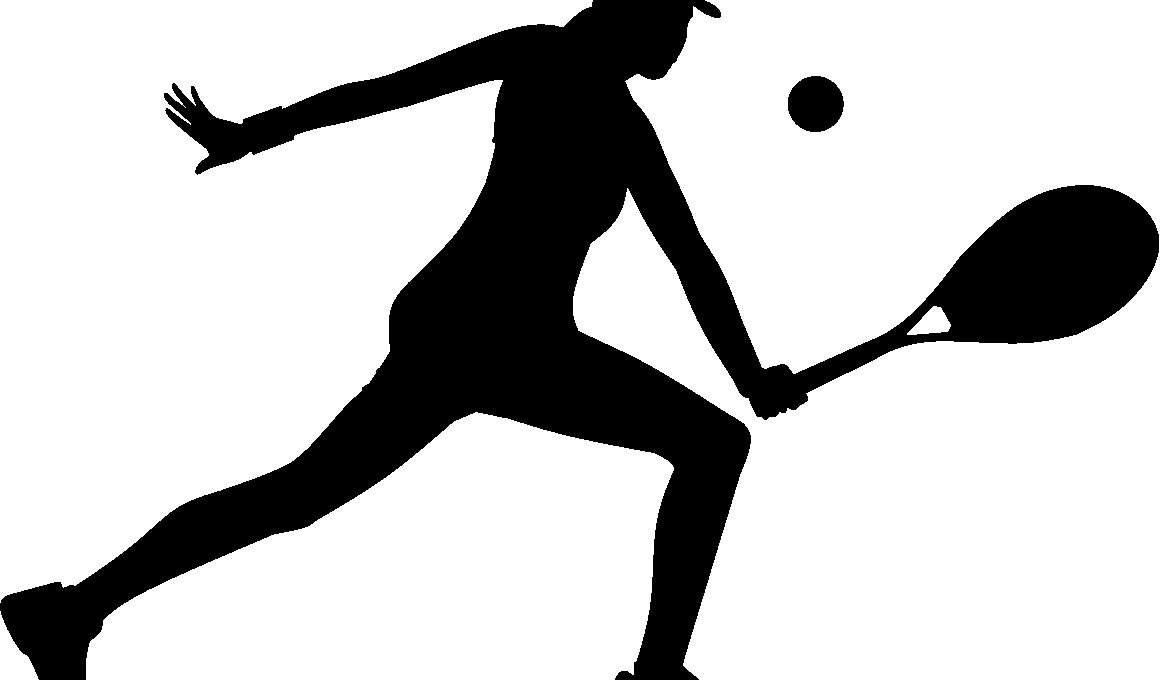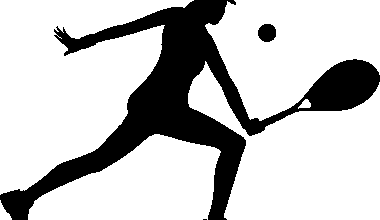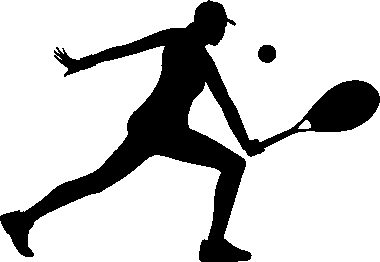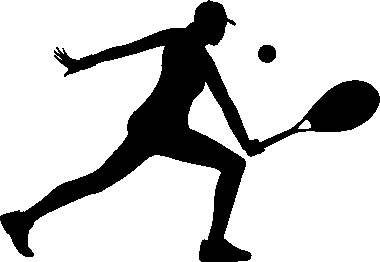Mind-Body Connection: Balance and Focus in Tennis
Tennis is not just a physical sport; it’s a mind-body connection that necessitates balance and focus. Elevating your performance inherently links to enhancing mental acuity and physical agility. The foundation of effective balance lies in establishing a strong core. To achieve this, consider integrating specific exercises targeting stability. Engaging the core enhances posture, allowing for smoother and quicker movements on the court. Practicing dynamic stretches can significantly contribute to your ability to maintain equilibrium while playing. Moreover, incorporating coordination drills into your training regime can improve both balance and reaction timing. Drills such as ladder agility exercises or cone drills will sharpen your muscle memory and enhance your coordination on the court. This heightened sense of balance allows players to react swiftly to incoming shots, thereby increasing overall gameplay fluidity. Remember, a well-rounded fitness routine should focus on strength, endurance, and flexibility. Each aspect contributes significantly to a player’s balance and coordination. As you hone these skills, witnessing improvement in your overall game will motivate you to keep pushing your limits further, thus enhancing your time on the court significantly.
A strong emphasis on mental conditioning is also crucial to excel in tennis. Visualization techniques enable players to mentally rehearse movements, which enhances one’s focus during matches. Implementing breathing exercises can help in steadying nerves, creating a clear mind, which is essential when competing. It’s equally important to prioritize a consistent practice schedule, which fosters not only physical capabilities but also mental fortitude. By cultivating discipline, you can sharpen both balance and concentration levels. While executing perfect serves or volleys, maintaining focus ensures optimal weight distribution. Regularly practicing mindful meditation can cultivate a sense of awareness, embracing both mental and physical states during play. Consider journaling your practice sessions, as it can help you identify patterns in your performance, unlocking insights into how balance affects your overall effectiveness on the court. You may find certain techniques work better in practice, while others excel during competition. Adaptability in your approach to balance and focus enriches your gameplay. Ultimately, both elements come together harmoniously, contributing positively to your experience and enjoyment in the sport. As you evolve, remember that focusing on the balance can lead to breakthroughs in your overall performance.
Exercises to Enhance Balance
Incorporating targeted exercises into your routine can dramatically enhance your balance, significantly benefiting your performance. Consider yoga or Pilates classes to improve stability and strength. These practices emphasize building a core foundation essential to achieving both balance and concentrated movement. Additionally, specific balance drills can make a profound difference. For instance, practicing single-leg stands helps develop proprioception, a crucial aspect of maintaining balance during dynamic movement. Another beneficial exercise is the Bosu ball squats, where you engage multiple muscle groups while practicing stabilization. Furthermore, incorporating resistance bands can enhance your coordination by adding increased difficulty to conventional exercises. Gradually increasing the complexity of the drills will ensure continual progress. A combination of strength training and balance routines promotes better weight distribution and body awareness during matches. Remember to incorporate these exercises consistently throughout your training regimen. Over time, you will likely notice significant improvements in your ability to transfer weight and respond effectively to rapid movements on the court. This enhancement in balance directly correlates with a heightened level of focus and composure, paving the way for victory in competitive play.
Moreover, specific drills that challenge your coordination are paramount to achieving balance and focus. Perform agility ladder drills to enhance footwork and mental focus simultaneously. Shuttling lateral movements can simulate match play situations, promoting quick footwork and responsive actions. Incorporating resistance exercises that involve rotation can also boost coordination, reinforcing the mind-body connection. You might explore functional movements like medicine ball throws or cable twists that mimic tennis strokes. Performing these activities in sets and reps will not only develop strength but also improve functional mobility. The addition of partner drills, such as mirror exercises, can sharpen your reflexes, enhancing game-related focus. Engaging in practice with a partner promotes social interaction and friendly competition while honing coordination skills. Consequently, the development of these skills translates directly to better performance in matches, establishing a strong connection between practice and competitive play. Every ounce of effort dedicated to refining your balance and coordination will be mirrored in your gameplay. By establishing these connections, your skill level will ascend, making you a formidable player on the court.
The Role of Nutrition
Nutrition plays an indispensable role in optimizing balance and focus in a sport like tennis. Eating the right foods before training or matches can significantly impact performance levels. Consuming a balanced diet rich in whole foods fuels energy levels and promotes recovery after intense sessions. Incorporating lean proteins, complex carbohydrates, and healthy fats will provide sustained energy and mental clarity. Foods high in omega-3 fatty acids, such as salmon and walnuts, are particularly beneficial for cognitive function. Hydration is equally essential, as dehydration can impair muscle coordination and concentration. Ensure you drink plenty of water throughout the day, and consider electrolyte-infused drinks during longer matches. Experimenting with meal timing can also play a critical role in enhancing focus and balance. Having a light snack loaded with healthy carbohydrates before practice can provide a quick energy boost. Post-workout nutrition aids recovery and reinforces the mind-body connection established during training. Additionally, practicing mindful eating can grow awareness of how food impacts performance. Embrace these nutritional strategies to transform your energy levels and overall physical balance on the court significantly.
Lastly, the psychological aspect of balance and focus cannot be overlooked. Developing a growth mindset promotes resilience, enabling players to stay composed during matches. Understanding that improvement takes time allows players to embrace challenges rather than resist them. Consider employing mental rehearsal techniques that visualize ideal gameplay scenarios. Mapping out strategies mentally will aid in reducing anxiety and reinforcing confidence when it truly matters. Engaging in team-building exercises may contribute to a collective improvement of focus and balance among players. Learning from one another’s strengths can amplify your skills, creating an enhanced support system on and off the court. It’s beneficial to schedule regular breaks in practice sessions to refresh and recharge both mentally and physically. Emphasizing relaxation techniques can reduce mental fatigue during long matches, preserving focus. Relying on proven routines can help establish a comfort zone that fosters self-trust and balance. Ultimately, the interplay between mental strategies and physical capability greatly enhances the tennis-playing experience, allowing athletes to break through personal barriers. Focus on the synergy of both elements to elevate your game and enjoy greater achievement in tennis.
Conclusion
In conclusion, the mind-body connection exemplifies the critical aspects of balance and focus in tennis. As players develop physical strength, they should also prioritize mental acuity. Blending core training with coordination drills establishes stability and composure essential for optimal movement. Examine how nutritional choices enhance performance levels, and employ strategies that cultivate mindfulness for improved concentration. Remember that refining these attributes integrates into a specialized routine that harmonizes practice with competition. Regular implementation of balance exercises augments agility, while coordination drills foster quick reactions. Mental strategies are equally crucial, building resilience and creative adaptability. The holistic approach combining physical, mental, and nutritional strategies positions players for success. As you embark upon this journey, growth and progress will be tantalizingly close. Improvement requires dedication and consistency across all fronts, ensuring a significant transformation in your game. Embrace the intertwined nature of mind and body in tennis, recognizing it as an integral part of your athletic journey. Focus on the connection, trust your abilities, and enjoy the remarkable experience that tennis brings to your life.





